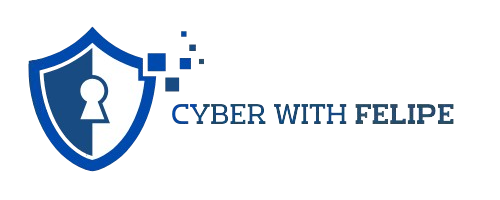Embarking on a career in cybersecurity can be both exciting and challenging. Whether you’re a beginner or advancing your skills, having the right resources can make all the difference. Below is a curated list of the best learning tools and platforms to guide you through your cybersecurity journey.
1. Online Courses
The internet offers a vast array of online courses that cover everything from foundational knowledge to advanced cybersecurity techniques. Below are some reputable platforms where you can find both free and paid courses:
Reputable Platforms:
- Coursera: Offers comprehensive cybersecurity courses from top universities like Stanford and IBM. Courses often include certificates upon completion, and many are beginner-friendly.
- Recommended Course: “Introduction to Cybersecurity by IBM.”
- Udemy: Known for its diverse range of affordable courses, Udemy is ideal for learners at any stage. You can find specific courses on ethical hacking, penetration testing, and network security.
- Recommended Course: “The Complete Cyber Security Course” by Nathan House.
- Cybrary: Specializes in cybersecurity and IT training, providing free and paid courses with a focus on practical skills.
- Recommended Course: “Introduction to IT and Cybersecurity.”
- edX: Collaborates with leading institutions like MIT and Harvard to offer courses covering a wide array of topics, including cryptography, threat analysis, and risk management.
- Recommended Course: “Cybersecurity Fundamentals by Rochester Institute of Technology.”
Tips for Course Selection:
- Match your level: Look for courses marked as beginner, intermediate, or advanced.
- Hands-on practice: Choose courses that offer labs, projects, or virtual environments to practice skills.
- Certification: Some courses provide certificates, which can be added to your resume or LinkedIn profile.
2. Community and Forums
Being part of a cybersecurity community provides invaluable opportunities to ask questions, share knowledge, and stay current on the latest threats and solutions. These forums and communities help you grow by interacting with other learners and professionals.
Recommended Communities:
- Reddit (r/cybersecurity): A vibrant forum where people discuss current security trends, share career advice, and post job opportunities.
- Hack The Box Community: Offers a platform to test your hacking skills in real-world scenarios while interacting with others in cybersecurity.
- StackExchange (Information Security): A well-known Q&A platform where professionals share advice on security issues, methodologies, and best practices.
- Cybrary Insider Pro Community: A private community for paid Cybrary members, providing discussions, study groups, and job opportunities.
Why Join?:
- Learning support: Communities are great for solving complex challenges.
- Networking: Engage with industry professionals who can help you advance your career.
- Stay updated: Discuss the latest security vulnerabilities and emerging technologies.
3. Books and E-Books
Books remain a timeless resource for deepening your understanding of cybersecurity. Below are some must-read titles to guide your learning.
Essential Reads:
- “Hacking: The Art of Exploitation” by Jon Erickson: A hands-on guide to exploiting software, teaching the ins and outs of C programming, assembly language, and shell scripting.
- “The Web Application Hacker’s Handbook” by Dafydd Stuttard: Perfect for those looking to dive deep into penetration testing and web security.
- “Applied Cryptography” by Bruce Schneier: A classic book that explains encryption algorithms and how they are applied in real-world systems.
- “Cybersecurity and Cyberwar: What Everyone Needs to Know” by P.W. Singer: A great read to understand the global impact of cybersecurity and its implications for politics and warfare.
Free Resources:
- Open Security Training: Offers a collection of free e-books and guides on advanced security topics like malware analysis and exploitation.
- Project Gutenberg: A useful platform to find older cybersecurity and technology-related books for free.
4. Webinars and Workshops
Attending webinars and workshops offers the opportunity to learn from experts and gain practical, hands-on experience. These events cover current cybersecurity issues, best practices, and advanced topics.
Where to Find Webinars:
- SANS Institute: Hosts regular webinars on incident response, cloud security, and emerging cybersecurity threats.
- Example Webinar: “The State of Ransomware 2024.”
- OWASP: Offers webinars on web application security, focusing on the latest security risks and mitigation techniques.
- Black Hat Webinars: Provides insights into cutting-edge research, hacking techniques, and defense strategies from top industry experts.
Why Attend?:
- Learn from experts: Webinars often feature prominent figures in cybersecurity.
- Hands-on workshops: Gain experience through interactive sessions and labs.
- Certification credits: Some webinars offer continuing professional education (CPE) credits for security certifications like CISSP.
5. Tools and Software
Understanding the tools used in cybersecurity is crucial for anyone entering the field. These tools are essential for vulnerability assessment, penetration testing, network monitoring, and encryption.
Key Tools:
- Nmap: A powerful network scanner used to discover hosts and services on a computer network, thereby creating a “map” of the network.
- Burp Suite: A popular tool for web application security testing, providing automated and manual vulnerability scanning.
- Wireshark: A network protocol analyzer used for capturing and analyzing network traffic to detect anomalies or suspicious activity.
- Metasploit: A comprehensive platform used for developing and executing exploits against a target machine.
- OpenVAS: A vulnerability scanner that can detect security issues in networks and applications.
Learning Resources for Tools:
- YouTube Tutorials: There are many detailed walkthroughs on how to use tools like Nmap and Burp Suite.
- Kali Linux Documentation: Kali provides built-in access to these tools with full documentation on how to use them.
6. Networking
Building and maintaining a strong network of professionals is a vital part of your cybersecurity journey. Your network can be a source of mentorship, collaboration, and job opportunities.
Tips for Networking:
Mentorship Programs: Organizations like Women in Cybersecurity (WiCyS) and (ISC)² offer mentorship programs to help guide your career.
Join LinkedIn Groups: Participate in cybersecurity groups where professionals discuss industry trends and job postings.
Attend Conferences: Whether virtual or in-person, cybersecurity conferences like DEFCON, Black Hat, and BSides provide incredible opportunities to meet and network with experts.


